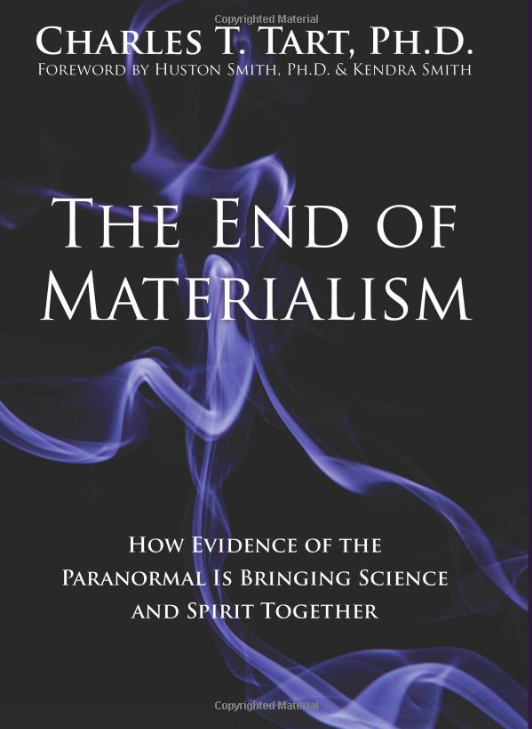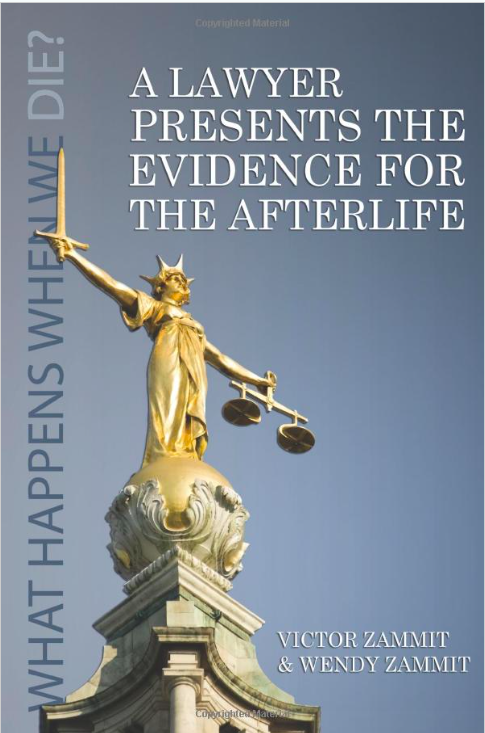|
One of the big challenges to a coherent discussion and universal understanding of consciousness is that we have such a wide diversity of experiences and very little “objective data”. Nobody has yet created a device that lets us objectively see and experience life after death or talk to consciousnesses without physical bodies ("dead people"), and at this point there is no way for most of us to access memories from our past lives. And so we find ourselves in a situation where people have such different experiential backgrounds that it is difficult for them to have meaningful dialogues. Some people have experiences that leave them in no doubt that they will survive physical death, or have lived before. They are sure that they are communicating with “dead people" and that they have left their physical body in their psychosomatic (astral body). On the other hand, there are people who have had no experience to make them even question that there is anything beyond physical live. They are utterly convinced that this physical dimension and this particular life is all there is, and that people who are talking about their near-death-experiences or mediumship experiences are either deluded or even lying. And the fact that there are no objective measures for most of the experiences that relate to the non-physical manifestation of consciousness means that dishonesty and deceit can not be ruled out. If you take the disbelief principle seriously – don’t believe in anything, have your own experiences – then extreme scepticism of those who have not experienced themselves as separate from the physical body is a perfectly legitimate attitude. I once worked with a man who had been clinically dead on 3 occasions, each time through a different traumatic accident. He recalled nothing at all from any of his periods of physical “death” and so for him the matters was clear: there is nothing after death! He had after all experienced it. This is a logical conclusion to come to. Of course, if we start thinking about things more deeply, we realise that just because we are not aware of experiencing something it does not mean nothing happened. Science tells us that we all dream, yet some people do not recall any dreams ever, while others can fill pages of detail with their dreams. So even if we do not recall dreams, we are inclined to accept that we must dream because science tells us that our brain measurements show this. Just as scientific research that brought us an understanding of the universality of dreams, there are also studies that mean we do not need to rely solely on our own personal experiences to become open to the possibility of non-physical consciousness. I readily admit that I am biased, as my ideas of the non-physical nature of consciousness are a result of my own experiences first and external study second. And I acknowledge that this will influence the way in which I read and interpret data. But to me the work of researchers like Charles Tart (The End of Materialism) and Victor Zammit (A Lawyer presents the evidence for the afterlife) is objectively compelling. While coming from quite different backgrounds (Tart is a psychologist and Zammit a lawyer) they both have forensic skills that they apply to compiling the data of many other researchers to strongly make the case that this data points to non-physical consciousness. One of the areas of research they both comment on in their books is the evidence for the fact that we have lived more than one life. In terms of mainstream research, this subject matter was originally studied in detail by Ian Stevenson, and upon his retirement by Jim Tucker, both psychiatrists. Cumulatively their work is now in the sixth decade and they have documented thousands of cases by children who remember being another person in a previous life. As part of their research, Stevenson and Tucker interview the child, parents and other significant people who witnessed the child recall his or her past life to get as much detail about their memories as possible. Then Stevenson and Tucker seek to verify the recalled information through research. In some cases, the child’s last life is so recent that the people they recall from it are still alive and able to corroborate details of the child’s account. Stevenson and Tucker's research also considers the fact that many of the children had unusual abilities, illnesses, phobias and philias which could not be explained by the environment or their heredity, but rational explanations for them could be found when the previous life was taken into consideration. Because of the compelling nature of the data there are many summary accounts of it online and I do not intend to reproduce them here, but if you have not already seen the data I encourage you to have a look at the links below, or even go all out and read Tucker’s Life before Life: Children’s Memories of previous lives. John Cleese Interviews Dr. Jim Tucker re: DOPS Research into Children's Past Life Memories https://www.youtube.com/watch?v=0Aoew3jKMb4 6 Extraordinary Cases Of Kids Who Remember Their Past Lives https://www.collective-evolution.com/2016/05/05/6-extraordinary-cases-of-kids-who-remember-their-past-lives/ The fact is though, that most of us do not recall our past lives, or if we do the memories are much more diffuse than those of the young children studied by Stevenson and Tucker. For most of us there are no specific names and actual street addresses. Instead we have inexplicable feelings, bodily sensations, movie like dreams, déjà vu experiences and moments of strange familiarity with people and places we have not encountered before. All of these experiences are much more readily dismissed as indicators of past lives on the basis of psychological explanations, than those of the children in the studies. And yet, much like the scientific studies into our dream lives, the implication of the studies by Stevenson and Tucker is precisely that we should not be dismissing our subtle and ambiguous experiences. If we follow the science, it invites the interpretation that past lives may be a significant part of what it means to be a consciousness in human form. If we are at least open to that possibility, it broadens our interpretive range by which we can understand the various subtle experiences and sensations I mentioned. And if we are not aware even of those experiences, a psychology based on the genuine acceptance of the possibility of past lives would still open entirely new avenues for understanding not only our individual character traits, but also our family and relationship dynamics. Because once we start to realise that we’ve all been here before, we can’t help but consider whether we have a shared history with those around us and how that may be affecting our relationships in the present. What if we are here to work things out with our family, our colleagues, our friends and neighbours and above all with ourselves? What if every encounter is an opportunity to rewrite old scripts and bring at least some more balance to any given relationship? What if we can come to understand that many of our natural tendencies, life experiences and circumstances have a basis in a past we have forgotten? And if we know that we will be coming back, how may that motivate us to think ahead in this life time, as well as relax a bit into the greater spaciousness we now have? This kind of awareness can open new avenues of understanding and acceptance, as well as a more expansive sense of being involved in a larger project of communal healing and reconciliation.
2 Comments
|
Details
AuthorKim McCaul is an anthropologist with a long term interest in understanding consciousness and personal transformation.
About this blogThis blog is about my interests in consciousness, energy, evolution and personal growth. My understanding of consciousness is strongly influenced by the discipline of conscientiology and I have a deep interest in exploring the relationship between culture and consciousness.
Have some inputI am often inspired by comments and questions from other people, so if there is something that interests you drop me a line and I will see if I can write something about the topic.
Support my workIf you enjoy something you read here consider supporting my work in this field by purchasing my book, which is available on any major online book store. It's a win-win as you will get a mind expanding read and I will feel the support and encouragement to write other mind expanding books. If you have read my book and enjoyed it please consider leaving a review of it on Amazon to help others find it. I am a great believer in creating community in the online space and sharing our passion for understanding consciousness is an excellent way of doing that.
Archives
November 2020
Categories
All
|

